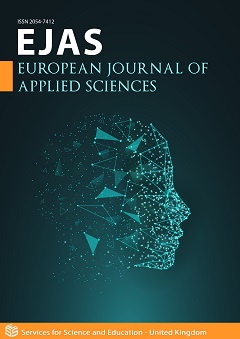An Understanding of How Technology Can Assist in the Epidemic of Medicine Nonadherence with the Development of a Medicine Dispenser
DOI:
https://doi.org/10.14738/aivp.113.14878Keywords:
Medicine Dispenser, Technology Assistance, Low-Cost Health Support, Personalized CareAbstract
Background: Medication non-adherence is an ever-growing issue that if not dealt with, could have severe consequences. Methods to attempt to improve adherence in patients have been considered, including alternative treatment plans and medicine dispensers. The use of technology in the healthcare field has helped the field advance in many different ways. This paper aims to understand whether the use of technology could be a solution to non-adherence to medicine through the development of a medicine dispenser. Methodology: The project focuses on the design and development of a low-cost automatic medicine dispenser. The medicine dispenser is divided into two parts: the dispenser and the alarm system. The dispenser section stores and releases the medication, while the alarm section notifies the user when it is time to take their medication and which medication to take. The project works by the user first specifying precise times for each of their medications (for example, the first drug is due at 8 am and the second medication is due at 2 pm), and then the project stores this information in order to dispense the medication at these times each day. Validation: For the experiment, data was collected over a five-day period, with the three dispensing compartments and the alarm system being recorded each day. The alarm system is set to notify the user three times per day when medication is required. This alarm system was observed to see if the buzzer alerted at the time of medicine, as well as the correct LED of the dispensing compartment, and whether the LCD screen displayed the medication reminder message. The dispensing compartments were evaluated based on whether the sensor identified the user's hand and whether the medication was given appropriately in a timely manner. Conclusion: The primary conclusions are that technology, such as the usage of a medicine dispenser, can be demonstrated to be a valuable tool in combating medicine non-adherence through research and experimentation. The 5 days test with the medicine dispenser demonstrates the efficacy and feasibility of technological interventions. Every day, the device's alarm system could notify the user when it was time to take their medication (i.e. at 8 am, 2 pm, and 8 pm). The results of the project highlight how the medicine dispenser developed in this project has proven to have potential for combating non-adherence in relation to the factors of forgetfulness and complex regimens. Further investigation can be conducted to gain a more detailed an accurate insight, as well as future improvements to the device to help other factors of non-adherence.
Downloads
Published
How to Cite
Issue
Section
License
Copyright (c) 2023 Mia Innes, Emanuele Lindo Secco

This work is licensed under a Creative Commons Attribution 4.0 International License.






